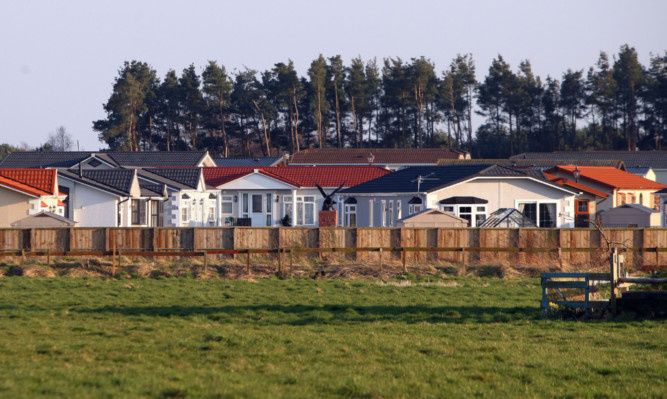People at a Tayside holiday park have been banned from keeping their main homes there, despite previous tenants having done so for almost a century.
So-called “hutters” at Barry Downs Holiday Park near Carnoustie stayed in permanent huts from 1918 until they were torn down in 2010 to make way for static homes.
But Angus Council has refused a certificate of lawfulness for new residents, frustrating the park’s owners.
Some 94 tenants now face scrutiny under council enforcement powers, which can lead to eviction if the local authority believes the park is their main address.
The site’s operators believe there will be no knock-on effect to residents, some of whom have said they fear “being watched” by enforcers.
It is understood the council first contacted Shoreline Management Ltd following allegations some of its tenants broke regulations against permanent occupation. The Isle of Man-based firm appointed lawyers Brodies LLP to prove the land had been used for that purpose for more than 10 years but it has been knocked back by planners.
Site manager Andrew Young told The Courier he is “disappointed” by the decision but believes the firm will reapply.
“We will work with the council and comply with all they require on this,” he added.
“At one time there were hundreds of huts all the way down to the (Panmure) golf course, and the site was first started by soldiers between the world wars.”
One resident, who asked not to be named, said: “We just want this to go away so we can enjoy our holidays in the sunshine in peace, like anyone would.”
Shoreline had applied for a certificate of lawful use regarding existing residential use of the land consisting of huts and Park Homes, occupied on either a temporary basis for holiday and leisure purposes, or a permanent basis as a principal residence by individuals and their families.
Mr Young provided a sworn affidavit towards the application, along with his father, Andrew Sr, former park owner Brian Toner and others.
Mr Young said the site was permanently occupied by hutters when his father took over the site in 2007.
The first recorded huts were built in 1918 as holiday homes for gassed and shell-shocked veterans of the First World War. These started to change hands for sale and rent by 1936 and evacuees were housed there during the Second World War.
Although there were 49 huts at the site come 2007, no two were the same. The huts were demolished in 2010 following a long-running legal dispute with Shoreline.
Hutter spokeswoman Pauline Rowling claimed that a way of life and a vibrant community had been destroyed.
